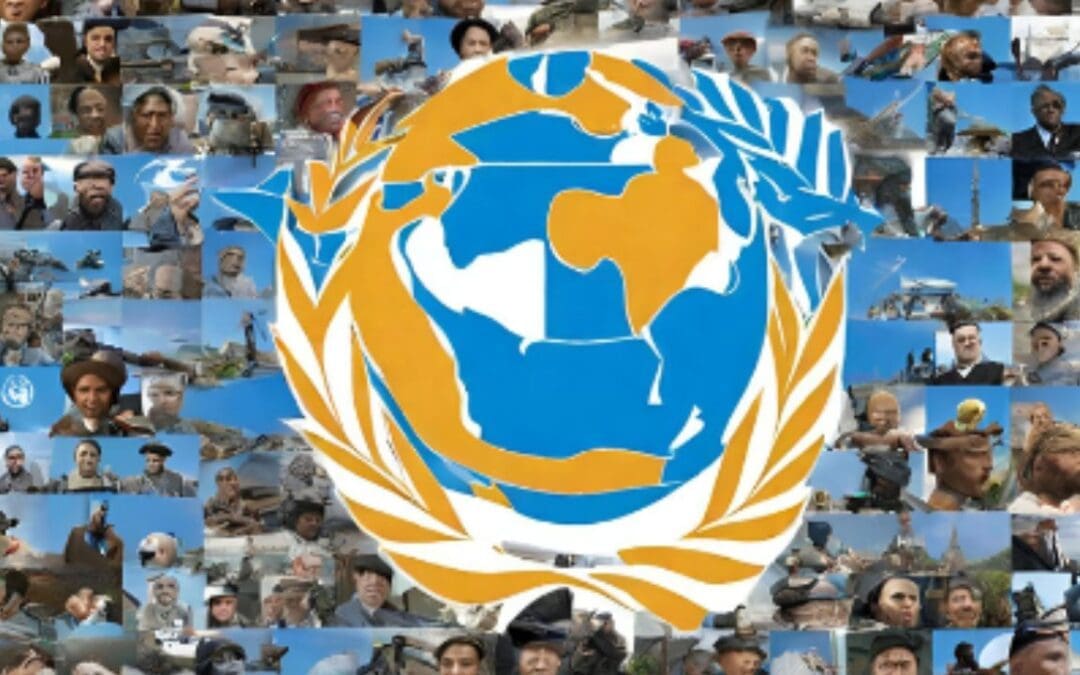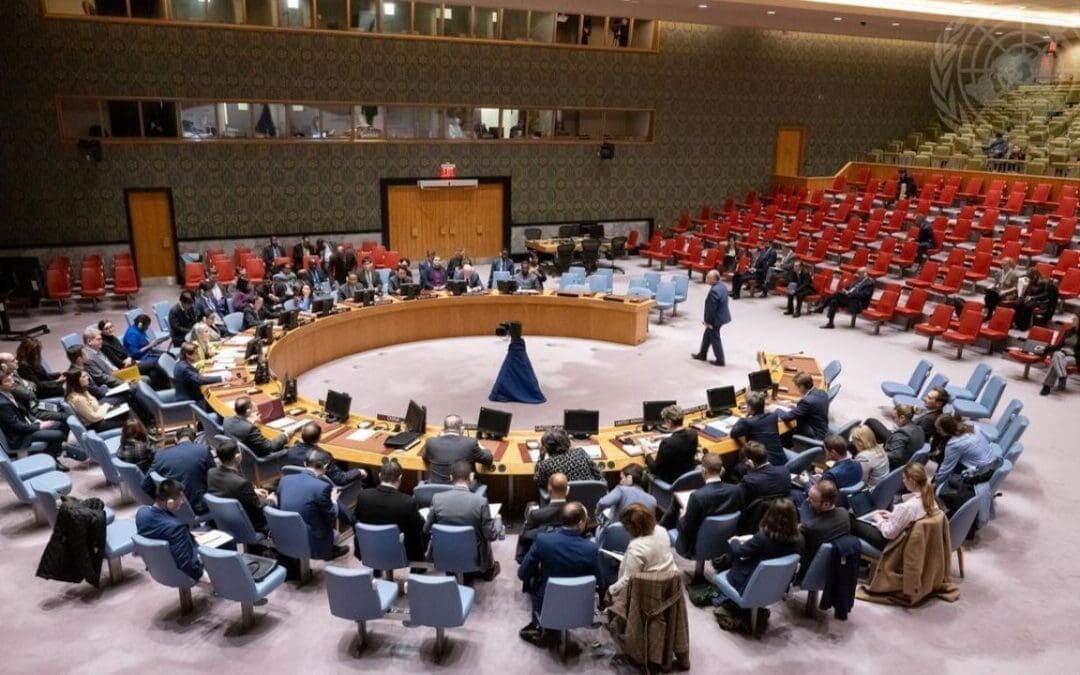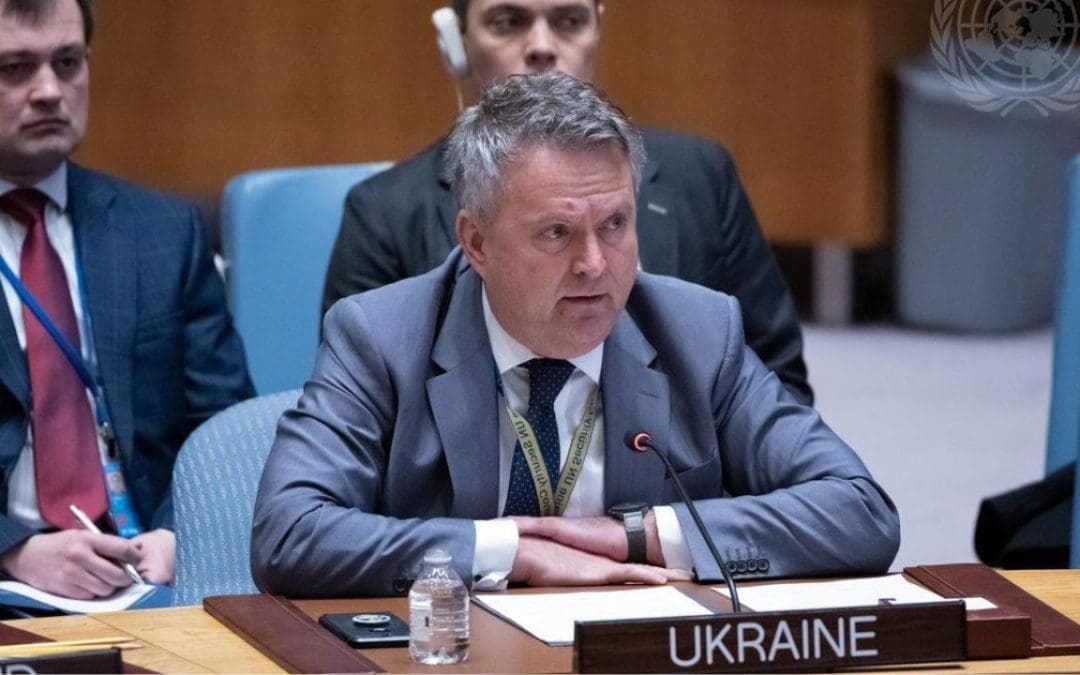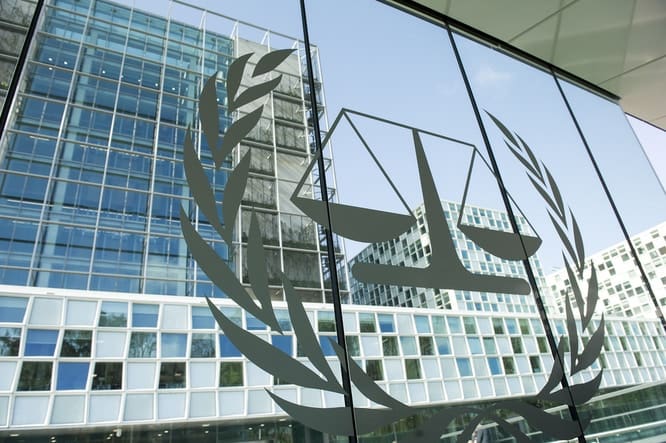
by Lawrence Wittner | Jan 31, 2024 | Peace
Although, according to the UN Charter, the United Nations was established to “maintain international peace and security,” it has often fallen short of this goal. Russia’s ongoing military invasion of Ukraine and the more recent Israeli-Palestinian war in Gaza provide the latest examples of the world organization’s frequent paralysis in the face of violent international conflict.
The hobbling of the Security Council, the UN agency tasked with enforcing international peace and security, bears the lion’s share of the responsibility for this weakness. Under the rules set forth by the UN Charter, each permanent member of the Security Council has the power to veto Security Council resolutions. And these members have used the veto, thereby blocking UN action.
This built-in weakness was inherited from the UN’s predecessor, the League of Nations. In that body, a unanimous vote by all member nations was required for League action. Such unanimity of course, proved nearly impossible to attain, and this fact largely explains the League’s failure and eventual collapse.
The creators of the United Nations, aware of this problem when drafting the new organization’s Charter in 1944-45, limited the number of nations that could veto Security Council resolutions to the five major military powers of the era―the United States, the Soviet Union, Britain, China, and France.
Other nations went along with this arrangement because these “great powers” insisted that, without this acceptance of their primacy, they would not support the establishment of the new world organization. The Charter’s only restriction on their use of the veto was a provision that it could not be cast by a party to a dispute―a provision largely ignored after 1952. Fortifying the privileged position of these five permanent Security Council members, the Charter also provided that any change in their status required their approval.
In this fashion, the great powers of the era locked in the ability of any one of them to block a UN Security Council resolution that it opposed.
Not surprisingly, they availed themselves of this privilege. By May 2022, Russia (which took the seat previously held by the Soviet Union), had cast its veto in the Security Council on 121 occasions. The United States cast 82 vetoes, Britain 29, China 17, and France 16.
As the Council’s paralysis became apparent, proponents of UN action gravitated toward the UN General Assembly. This UN entity expanded substantially after 1945 as newly-independent countries joined the United Nations. Moreover, no veto blocked passage of its resolutions. Therefore, the General Assembly could serve not only as a voice for the world’s nations, but as an alternative source of power.
The first sign of a shift in power from the Security Council to the General Assembly emerged with the General Assembly’s approval of Resolution 377A: “Uniting for Peace.” The catalyst was the Soviet Union’s use of its veto to block the Security Council from authorizing continued military action to end the Korean War. Uniting for Peace, adopted on November 3, 1950 by an overwhelming vote in the General Assembly, stated that, “if the Security Council, because of lack of unanimity of the permanent members, fails to exercise its primary responsibility for the maintenance of international peace and security . . . the General Assembly shall consider the matter immediately with a view to making appropriate recommendations to members for collective measures.” To facilitate rapid action, the resolution created the mechanism of the emergency special session.
Between 1951 and 2022, the United Nations drew upon the Uniting for Peace resolution on thirteen occasions, with eleven cases taking the form of the emergency special session. In addition to dealing with the Korean War, Uniting for Peace resolutions addressed the Suez confrontation, as well as crises in Hungary, Congo, Afghanistan, Palestine, Namibia, and Ukraine. Although, under the umbrella of Uniting for Peace, the General Assembly could have recommended “armed force when necessary” against violators of international peace and security,the Assembly adopted that approach only during the Korean War. On the other occasions, it limited itself to calls for peaceful resolution of international conflict and the imposition of sanctions against aggressors.
These developments had mixed results. In 1956, during the Suez crisis, shortly after the General Assembly held a Uniting for Peace session calling for British and French withdrawal from the canal zone, both countries complied. By contrast, in 1980, when a Uniting for Peace session called for an end to the Soviet invasion of Afghanistan, Moscow ignored the UN demand. It could do so thanks to the fact that General Assembly resolutions are mere recommendations and, as such, are not legally binding.
Even so, global crises in recent years have heightened pressure to provide the United Nations with the ability to take effective action. In April 2022, shortly after the Russian government vetoed a Security Council resolution calling for Russia’s unconditional withdrawal from Ukraine, the General Assembly voted that, henceforth a Security Council veto would automatically trigger a meeting of the Assembly within ten days of the action to cope with the situation.
Meanwhile, numerous nations have been working to restrict the veto in specific situations. In July 2015, the UN Accountability, Coherence, and Transparency Group proposed a Code of Conduct against “genocide, crimes against humanity, or war crimes” that called upon all Security Council members to avoid voting to reject any credible draft resolution intended to prevent or halt mass atrocities. By 2022, the Code had been signed by 121 member nations. France and Mexico have taken the lead in proposing the renunciation of the veto in these situations.
These reform initiatives are likely to be addressed at the September 2024 UN Summit of the Future.
Clearly, as the history of the United Nations demonstrates, if the world organization is to maintain international peace and security, it must be freed from its current constraints.
This article was originally published in PeaceVoice.

by Jerry Tetalman | Jan 19, 2024 | Peace
The war in Ukraine has destabilized and polarized the international order. It pits two nuclear-armed superpowers, the United States and Russia, against each other. Any miscalculation can take all of us to nuclear Armageddon. This war has created untold human misery. Ending this war should be a top priority for humankind. How can the war be ended and on what terms?
Conventional wisdom holds that wars end in one of two ways. Either one side wins and the other loses or they negotiate a peace agreement by coming to an understanding that both sides can live with. The Russian invasion of Ukraine currently looks like a stalemate, with little territory being won or lost in the last year and both sides seemingly adhering to a position requiring total victory.
Russia seems to be playing the long game, of waiting out the resolve of the West to fund and support Ukraine. Sanctions on Russia have had an effect, but it still sells oil to China, India, and much of the world.
Ukraine’s goal is to regain its lost territory, maintain its current territory, and achieve security against future invasions. Russia wants to control all of Ukraine and wants to prevent it from joining NATO. The question is, can a peace agreement be made that both sides can live with?
Countries at war start to look for alternatives when victory is no longer assured or even likely. This war has reached that point. Negotiations give countries options in a no-win situation. Are the parties ready to negotiate?
Peace agreements are reached by making a win-win deal where both sides get something they want out of it. Of course, they need to compromise and give up some things as well.
Russian President Vladimir Putin is a key to any peace deal, for he must be willing to negotiate and implement any agreement reached. But the other key is Ukraine, whose territory has been invaded, occupied, and annexed by Russia.
The “deciders” will be Russia (essentially Putin) and Ukraine (the Zelensky administration). They will be the ones with representatives at the negotiating table.
Beyond “the table,” there are other influencers, such as those who support Ukraine with arms and funding–the European Union and the US. Some tacitly support Russia by continuing commerce with Putin and by not voting in the UN to sanction Russia.
If an understanding and peace settlement is to be reached between Ukraine and Russia, we must consider what institution is most capable of facilitating the necessary negotiations. The United Nations which is the world’s largest and most important international peace organization is the logical party, for this task, according to its charter, its goal is to “prevent the scourge of war.” Unfortunately, the UN Security Council is hobbled by the fact that Russia and the other great powers that emerged victorious in World War II―the United States, France, the United Kingdom, and China―exercise veto power. And Russia has vetoed Security Council action in connection with the Ukraine war.
Another option is for UN Secretary-General Antonio Guterres to organize serious peace negotiations. The role of the Secretary-General is that of chief diplomat for all nations. That official is charged with mediation and appointment of envoys to broker peace agreements. In getting such negotiations off the ground, he might find it useful to draw upon countries such as China or Turkey, both of which have a rapport with Putin.
The International Court of Justice was foreseen by the UN Charter as the primary method of resolution of disputes between Countries, offering law as an alternative to war. The law needs enforcement, and the ICJ is limited in this area. Its preliminary ruling against Russia, nearly two years ago, was ignored by Putin. The International Court of Justice has resolved the majority of the cases they hear through a voluntary agreement. If we are to move from an international system based on war and military force to a system based on law and justice, we need to empower and expand the International Court of Justice to include all nations in the UN.
We must also move forward with reform of the UN Security Council, thereby ending its paralysis when it comes to enforcing world peace and security. A more democratic United Nations, with greater funding and enforcement power, is necessary if we hope to survive this dangerous time. We can move from war to law by reforming and strengthening the United Nations, but it will take some creative thinking and action by all of us.
This article was originally published in Black Star News.
Image Credits: UN Photo/Manuel Elías

by Lawrence Wittner | Dec 14, 2023 | Peace
Although the unfolding humanitarian catastrophe in Gaza has captured the world’s horrified attention, the war in Ukraine has had even more terrible consequences. Grinding on for nearly two years, Russia’s massive military invasion of that country has taken hundreds of thousands of lives, created millions of refugees, wrecked Ukraine’s civilian infrastructure and economy, and consumed enormous financial resources from nations around the world.
And yet, despite the Ukraine War’s vast human and economic costs, there is no sign that it is abating. Russia and Ukraine are now bogged down in very bloody military stalemate, with about a fifth of Ukraine’s land occupied and annexed by Russia.
Meanwhile, polls show that an overwhelming majority of Ukrainians remain determined to continue the struggle to free all of Ukraine from Russian captivity. Indeed, an opinion survey in the fall of 2023 found that 80 percent of Ukrainians polled believed that under no circumstances should Ukraine give up any of its territory.
Similarly, in Russia, polls have found that a majority of the public appears content with the Putin regime’s military conquest of Ukraine and is opposed to any peace settlement that would relinquish Russian control of conquered Ukrainian land. Of course, the accuracy of Russian polls on the Ukraine War remains deeply suspect, for professing opposition to the war could easily lead to arrest, as it did for 20,000 Russians in 2022. Perhaps for this reason, numerous Russians polled refused to answer the question of where they stood on the war. One participant responded: “Thank you for the opportunity not to testify against myself.” In any case, in increasingly authoritarian Russia, public sentiment against war seems unlikely to alter the Putin administration’s determination to triumph on the battlefield.
Admittedly, in the United States, the major supplier of military and economic aid to beleaguered Ukraine, some developments point to declining enthusiasm for that role. The Republican Party has revived its 1930s policy (once termed “isolationism”) of appeasing military aggression by rightwing dictatorships, while leftists with an anti-American slant see a Russian victory as a useful way of somehow destroying “U.S. imperialism.” Nonetheless, unless Donald Trump and his MAGA followers sweep into power in 2024, it seems unlikely that the U.S. government or its NATO partners will entirely abandon Ukraine to a future under the jackboot of Russian military occupation.
Given these obstacles, is there a way to secure a just settlement of the Ukraine War?
There is, but it will take some creative action by the United Nations, the global organization that has been authorized to enforce international security.
Since the beginning of the Russian invasion of Ukraine on February 24, 2022, the overwhelming majority of the world’s nations have repeatedly used their participation in the UN General Assembly to condemn the Russian invasion and to call for a just peace in Ukraine. For example, on the eve of the one-year anniversary of the war, the General Assembly, by a vote of 141 nations to 7 (with 32 abstentions), demanded that Russia “immediately, completely, and unconditionally” withdraw its military forces from Ukraine and called for a “cessation in hostilities” and a “comprehensive, just and lasting peace” based on the principles enshrined in the UN Charter. The UN Charter, of course, constitutes international law and bans “the threat or use of force against the territorial integrity or political independence of any State.”
Even so, it is the UN Security Council that is tasked with enforcing international security, and Russia has used its veto in that UN entity to block UN action to end the Ukraine War.
The paralysis of the UN Security Council, however, need not continue. As Louise Blais, Canada’s ambassador to the United Nations from 2017 to 2021, has recently pointed out, Article 27 (3) of the UN Charter states that a party to a dispute before the Security Council shall abstain from voting in connection with the dispute. But, when it came to the Security Council’s votes on the Ukraine War, as Blais noted, “none of the 10 elected Security Council members had the courage, vision or backing to put forward a resolution” demanding abstention. According to Blais, the unwillingness of the four other veto-wielding members (Britain China, France, and the United States) to avoid a crippling Russian veto and, thereby, empower the Security Council to act, reflected their “zero interest in supporting such a move for fear it would limit their own power in the future.”
But there is ample precedent for limiting the veto in this fashion. The United Nations has a history of veto-wielding nations abstaining from Security Council voting when they are parties to a dispute. As Blais observes, between 1946 and 1952, Security Council members “regularly adhered to the obligatory abstention rule.” Only in later years did the five permanent Security Council members curtail the application of this practice.
In short, based on both international law and precedent, the UN Security Council has the authority to impose a settlement of the disastrous Ukraine War. What kinds of international action this would require would need to be determined by the world organization, just as the final terms of a peace agreement would ultimately need to be accepted by the contending parties. But, given the overwhelming support in the UN General Assembly for the withdrawal of Russian military forces from Ukraine and for a lasting peace agreement, such a peace settlement is likely to be a just one.
At the least, this would be a far better method of dealing with international conflict than the current full-scale war currently raging in Ukraine. And it could serve as a model for resolving other intractable disputes, such as the brutal Israel-Palestine conflict, as well.
This article was originally published in International Physicians for the Prevention of Nuclear War’s Peace and Health Blog
Image Credits: UN Photo/Evan Schneider

by Sovaida Maani Ewing | May 4, 2023 | Global Cooperation
Lessons Repeat Themselves Until Learned
One of the inescapable features of human existence is that lessons we fail to learn repeat themselves over and over, usually with increasing ferocity until the lesson is learned. This principle applies not only to our individual lives, but to humanity’s collective life as well. One of these global lessons that has been repeating itself with ever-increasing intensity is that localized or regional conflicts have global repercussions.
A good example is the war in Syria, which spawned a number of crises that impacted countries far beyond its border. One of them was the refugee crisis, which affected not only Syria’s immediate Middle Eastern neighbors like Lebanon, Jordan, and Turkey but had far-reaching effects in Europe as well. The wave of refugees washing up on Europe’s shores was a driving force in the rise of right-wing governments in several countries. It was also one of the factors that precipitated Brexit, as the United Kingdom frantically attempted to take control of its own destiny and limit the flow of unwanted refugees to its shores.
The Syrian conflict also created fertile conditions in Syria and Iraq that allowed ISIS to flourish and carry out brutal acts that impacted the citizens of many nations near and far. In addition, the civil war in Syria resulted in the creation of what some of the media referred to as a “proto world war,” as countries arrayed themselves on opposing sides of a widening conflict.
We Missed the Opportunity to Learn from the War in Syria
Unfortunately, the international community failed to grasp the opportunity arising from the conflict in Syria to devise a global mechanism to end the Syrian conflict. It is therefore no surprise that one of the most pressing conflicts of the day, Russia’s war against Ukraine, has left our global leaders paralyzed, dithering, taking half-measures and seemingly unable to take the kind of decisive and effective action that would have nipped it in the bud before it festered into the global morass it is today.
The War in Ukraine Has Triggered Several Global Crises
This latest regional conflict has been having its own world-encircling impact: indeed, it has been responsible for triggering several global crises. They include a global food crisis that has resulted in food shortages and the rise in the price of bread, a staple food which so many, especially in the poorest nations, rely on for survival. The Ukraine conflict has also sparked a global energy crisis as the flow of natural gas from Russia, on which many countries have relied, has significantly diminished. The result has been a spike in the price of energy across the world, including the richer nations of Europe. In the U.K. alone, the cost of heating homes has risen dramatically, causing much economic pain. As though this were not enough, the war has contributed to the rise of stubborn inflation worldwide which is having a significant and deleterious impact on the global economy. Some, including the World Bank, fear that we will soon find ourselves in a global recession.
To add to all these global crises, the nations of the world are dividing themselves into two opposing camps with the United States, Europe, Japan, South Korea, Australia and New Zealand arrayed on one side and Russia, China, Iran, North Korea, and possibly India on the other. This level of global polarization constitutes a threat to global peace and security. In the past, it has led to world wars, a consequence we want to avoid at all costs. The threat is exacerbated by the increasing worry that nuclear weapons may be used either accidentally or deliberately by one of these nations in a moment of heated miscalculation, triggering a nuclear war, which, even if limited geographically, would have disastrous consequences for humanity.
It’s Time to Revisit President Wilson’s 14 Points and the Atlantic Charter
The ever-increasing cascade of crises points to the imperative need for the international community to devise a viable global system of collective security that is capable of ensuring international peace. It is time for the world to revisit and finally implement two principles proposed by two American presidents in the early and middle parts of the twentieth century.
The first is the principle that was proposed by President Woodrow Wilson in 1918 as part of his 14 Point program which called for limiting the number of arms each nation can possess to the smallest amount consistent with domestic safety. Alas, the world failed to implement this recommendation when it created the League of Nations in the aftermath of the First World War. It failed to do so at its peril and suffered another devastating world war. The world then missed another opportunity to implement President Wilson’s recommendation when the United Nations was created after the Second World War.
The second principle that the world should seriously revisit and implement is set out in Article 8 of the Atlantic Charter, drawn up by U.S. President Franklin D. Roosevelt and U.K. Prime Minister Winston Churchill in August 1941. This principle called for nations to abandon the use of force “for realistic as well as spiritual reasons.” It, too, was never implemented.
The Key to Peace is Creating a Global System of Collective Security
Given the recent horrors humanity has experienced as a result of the conflicts in Syria and Ukraine (and in many other nations, including Yemen, Ethiopia, Myanmar, and Sudan), the international community may finally be ready to build a global system of collective security that is firmly grounded in these two foundational principles.

by Lawrence Wittner | Jan 31, 2023 | Global Justice, Human Rights
The Ukraine War has provided a challenging time for the nations of the world and, particularly, for international law.
Since antiquity, far-sighted thinkers have worked on developing rules of behavior among nations in connection with war, diplomacy, economic relations, human rights, international crime, global communications, and the environment. Defined as international law, this “law of nations” is based on treaties or, in some cases, international custom. Some of the best-known of these international legal norms are outlined in the United Nations Charter, the Universal Declaration of Human Rights, and the Geneva Conventions.
International Law and Ukraine
The UN Charter is particularly relevant to the Russian invasion of Ukraine. Article 2, Section 4, perhaps the most important and widely-recognized item in the Charter, prohibits the “use of force against the territorial integrity or political independence of any state.” In Article 51, the Charter declares that “nothing in the present Charter shall impair the inherent right of individual or collective self-defense if an armed attack occurs against a member of the United Nations.”
Ukraine, of course, although partially or totally controlled by Russia or the Soviet Union during portions of its past, has been an independent, sovereign nation since 1991. That year, the Soviet Union, in the process of disintegration, authorized Ukraine to hold a referendum on whether to become part of the Russian Federation or to become independent. In a turnout by 84 percent of the Ukrainian public, some 90 percent of participants voted for independence. Accordingly, Ukraine was recognized as an independent nation. Three years later, in the Budapest Memorandum, Ukraine’s government officially agreed to turn over its large nuclear arsenal to Russia, while the Russian government officially pledged not only to “respect the independence and sovereignty and the existing borders of Ukraine,” but to “refrain from the threat or use of force” against that country. In 1997, Ukraine and Russia signed the Treaty on Friendship, Cooperation, and Partnership, in which they pledged to respect one another’s territorial integrity.
The Russian Military Assaults of 2014 and 2022
Despite these actions, which have the status of international law, the Russian government, in 2014, used its military might to seize and annex Crimea in southern Ukraine and to arm pro-Russian separatist groups in the nation’s eastern region, the Donbas. Although a Russian veto blocked a UN Security Council rebuke, the UN General Assembly, on March 27, 2014, passed a resolution (“Territorial Integrity of Ukraine”) by a vote of 100 nations to 11, with 58 nations abstaining, condemning the Russian military seizure and annexation of Crimea. Ignoring this condemnation of its behavior by the world organization, the Russian government incorporated Crimea into the Russian Federation and, in August, dispatched its military forces into the Donbas to bolster the beleaguered separatists. Over the following years, Russia’s armed forces played the major role in battling the Ukrainian government’s troops defending eastern Ukraine.
Then, on February 24, 2022, the Russian government, in the most massive military operation in Europe since World War II, launched a full-scale invasion of Ukraine. Although UN Security Council action was again blocked by a Russian veto, the UN General Assembly took up the issue. On March 2, by a vote of 141 countries to 5 (with 35 abstentions), it demanded the immediate and complete withdrawal of Russian military forces from Ukrainian territory. Asked for its opinion on the legality of the Russian invasion, the International Court of Justice, the world’s highest judicial authority, ruled on March 16, by a vote of 13 to 2 (with Russia’s judge casting one of the two negative votes) that Russia should “immediately suspend” its invasion of Ukraine.
The Illegality of Russia’s Annexation of Ukrainian Territory
In late September 2022, when the Kremlin announced that a ceremony would take place launching a process of Russia’s annexation of the Ukrainian regions of Donetsk, Luhansk, Kherson, and Zaporizhzhia, UN Secretary-General Antonio Guterres warned that “any annexation of a state’s territory by another state resulting from the threat or use of force is a violation of the principles of the UN Charter and international law.” Denouncing the proposed annexation, Guterres declared:
- It cannot be reconciled with the international legal framework.
- It stands against everything the international community is meant to stand for.
- It flouts the purposes and principles of the United Nations.
- It is a dangerous escalation.
- It has no place in the modern world.
Nevertheless, the following day, Russian President Vladimir Putin signed an accord to annex the regions, declaring that Russia would never give them up and would defend them by any means available.
In turn, the nations of the world weighed in on the Russian action. On October 12, 2022, the UN General Assembly, by a vote of 143 countries to 5 (with 35 abstentions), called on all nations to refuse to recognize Russia’s “attempted illegal annexation” of Ukrainian land.
Law Without Enforcement
What, then, after surveying this sorry record, are we to think about the value of international law? It is certainly useful for defining the rules of international behavior―rules that are essential to a civilized world. Addressing the UN Security Council recently, the UN Secretary General declared that “the rule of law is all that stands between peace and stability” and “a brutal struggle for power and resources.” Even so, although it is better to have agreed-upon rules rather than none at all, it would be better yet―indeed, much better―to have them enforced.
And therein lies the fundamental problem: Despite agreement among nations on the principles of international law, the major entities providing global governance―the United Nations and the International Court of Justice―lack the power to enforce them. Given this weakness at the global level, nations remain free to launch wars of aggression, including wars of territorial conquest.
Surely the Russian invasion of Ukraine should convince us of the need to strengthen global governance, thereby providing a firmer foundation for the enforcement of international law.






























